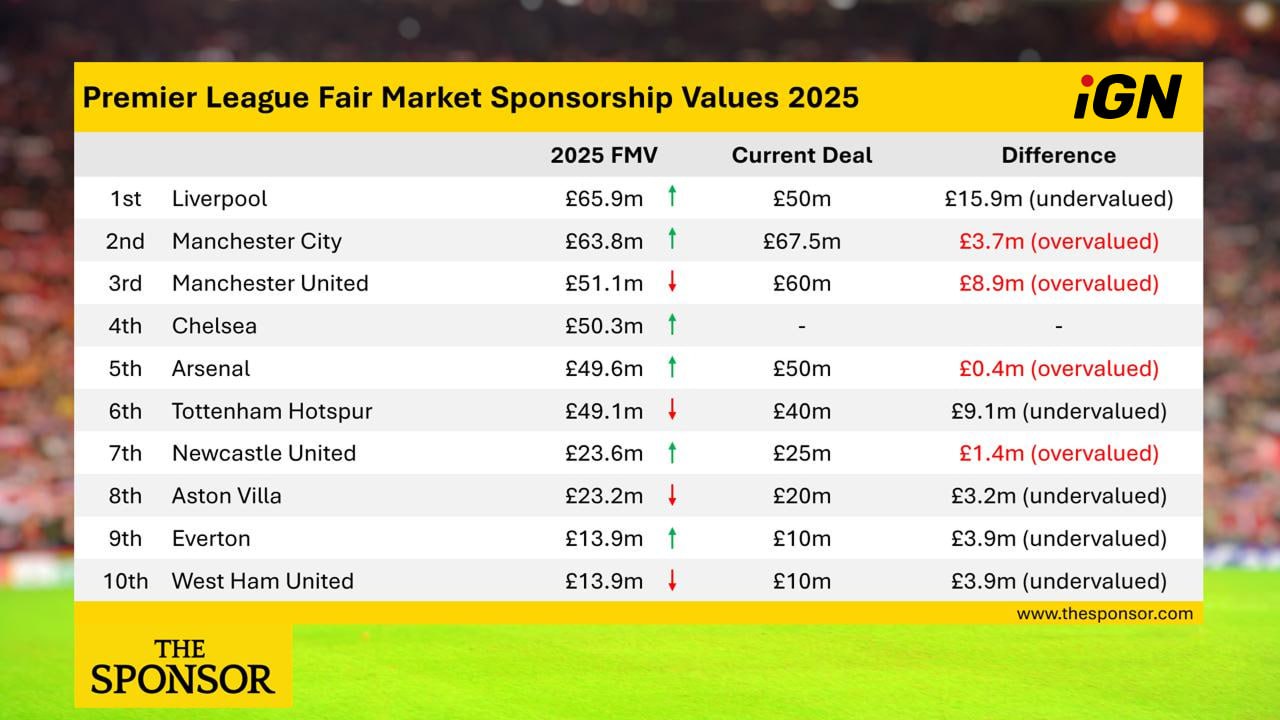Premier League Clubs to Lose Up to 60% of Revenue Due to Betting Shirt Ban

Eleven Premier League clubs have sponsorship deals with gambling operators to display their logos on the front of their shirts.
Revenue Drop: What the Ban Will Lead To
Starting from the 2026/27 season, English clubs will no longer be allowed to feature betting advertisements on the front of their shirts.
This decision will impact the revenues of many teams, especially those who have contracts with gambling companies.
In the 2024/25 season, 11 Premier League clubs wore betting logos on the front of their shirts:
- Aston Villa
- Bournemouth
- Brentford
- Crystal Palace
- Everton
- Fulham
- Leicester
- Nottingham Forest
- Southampton
- West Ham
- Wolverhampton
The commercial director of one of the clubs noted: “The highest offer from any brand was less than half of what the gambling industry offers”. This explains why the ban raises concerns among teams with low commercial appeal.
Alternatives for Clubs
In search of new sponsors, clubs are turning to crypto and fintech companies. However, experts believe that these sectors may not always compensate for the losses caused by the departure of betting firms.
The Sponsorship Market in the Premier League: Who Wins and Who Loses
According to research by The Sponsor, which evaluates the fair market value (FMV) of Premier League clubs’ sponsorship deals, some teams secure profitable deals, while others overpay or miss out on potential revenue.
| Club | Chest Sponsorship Value (£m) | Sleeve Sponsorship Value (£m) |
|---|---|---|
| Liverpool | 65.9 | 31.4 |
| Manchester United | 51.1 | 20.0 |
| Manchester City | — | 55.0 |
Liverpool — Leader in Sponsorship Value
Liverpool remains the most valuable asset in the Premier League sponsorship market. Its chest sponsorship is valued at £65.9 million, and the sleeve deal at £31.4 million. This is due to:
- Successful performances in the Premier League and European competitions
- Global popularity and a loyal fan base
- High player engagement in the media space
By retaining star players like Mohamed Salah and Virgil van Dijk, the club enhances its appeal to sponsors.
Their actions on and off the pitch serve as powerful brand communication channels, such as Salah’s viral celebration with Google Pixel.
Manchester United: Decline Due to Absence from European Competitions
Manchester United lost £13.4 million in chest sponsorship value and another £3.1 million on the sleeve due to not participating in European tournaments.
Despite its partnership with Qualcomm worth around £60 million per year, a decline in reputation and poor on-field performance reduce the club’s commercial attractiveness.
The Sponsor editor, Sean Connell, notes: “The global fanbase and the club’s legacy remain strong, but the gap between image and reality is widening”.
How Fair Market Value (FMV) is Assessed
The Sponsor’s methodology includes:
- Brand strength assessment: history, reputation, fan engagement, cultural significance.
- Comparison with market deals: contract analysis via verified sources (e.g., The Athletic).
- Mathematical modeling: building a market curve using polynomial regression.
Three Key Evaluation Categories
- Reputation: club history, cultural significance, infrastructure
- Audience: scale, frequency of contact, demographics
- Contribution: community involvement, sustainability, fan initiatives
The Future of Club Revenue After the Ban
With reduced revenue from betting sponsors, clubs will need to revise their commercial strategies.
Teams with strong media appeal, like Liverpool, will have the opportunity to increase contract values.
Others will have to fight for brand attention in a highly competitive environment with new regulatory restrictions.
